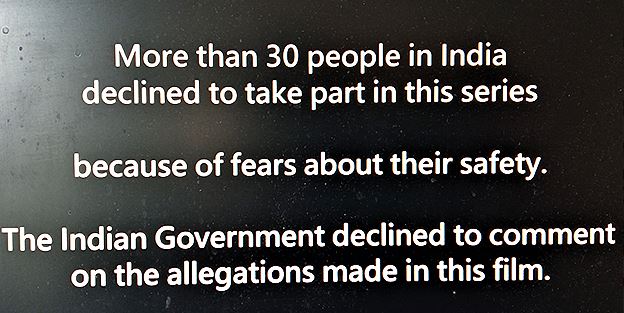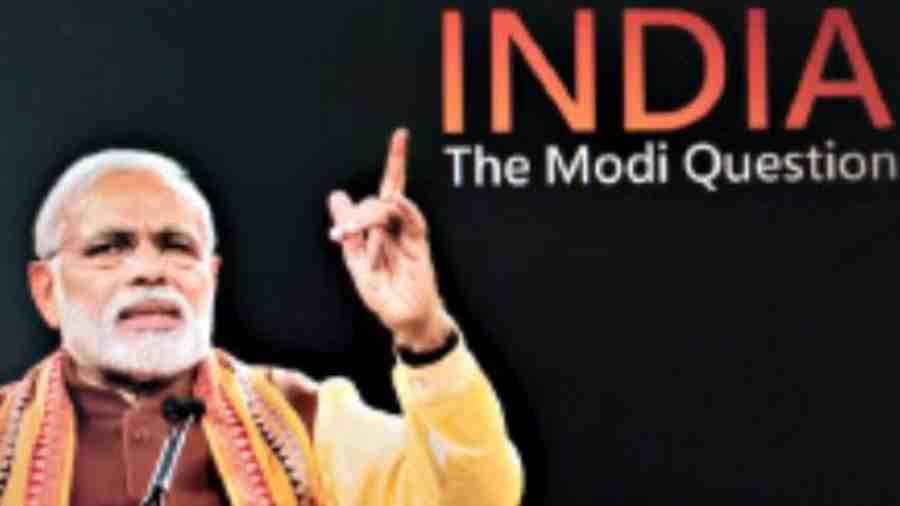The BBC has cited its rigorous research and highest editorial standards to stand by the documentary, India: The Modi Question, but said that “there are no current plans to show this in India”.
The disclosure is certain to raise questions on whether the BBC had caved in to the backlash from the Indian government and protests from Indian-origin Britons. If the decision is the outcome of pressure, it would beg the question of why viewers in India are being denied the opportunity to see what audiences in the UK can.
The whiff of anxiety usually associated with repressive regimes hung in the air with the BBC appearing concerned about its Indian staff and going out of its way to declare that they were not involved in the making of the documentary.
On Thursday, the Narendra Modi government had described the documentary, the first part of which dealt with the Gujarat riots of 2002, as a propaganda piece that revealed a colonial mindset.

A screenshot from the BCC documentary on Modi. A part of the announcement says: “More than 30 people in India declined to take part in this series because of fears about their safety Sourced by The Telegraph
The BBC said in a statement issued on Friday: “The documentary will be shown on BBC Two in the UK, and there are no current plans to show this in India. The documentary will air on BBC Two on 24th January as planned.
“BBC staff in India were not involved in the making of these programmes. This documentary was commissioned by BBC Current Affairs based in the UK and intended for a domestic audience.”
In the documentary, the BBC has disclosed that at least 30 people in India were afraid to take part in it.
Right at the start of the first episode, which was shown on January 15 for a domestic audience in the UK for BBC2, the BBC flagged its concerns by declaring: “More than 30 people in India declined to take part in this series because of fears about their safety.”
It added: “The Indian government declined to comment on the allegations made in this film.”
The BBC responded to criticism of the programme from the Indian government by issuing an earlier statement on Thursday. “The BBC is committed to highlighting important issues from around the world.”
The BBC added: “The documentary series examines the tensions between India’s Hindu majority and Muslim minority and explores the politics of India’s PM Narendra Modi in relation to those tensions. This has been the source of considerable reporting and interest both in India and across the world in recent years.
“The documentary was rigorously researched according to highest editorial standards. A wide range of voices, witnesses and experts were approached, and we have featured a range of opinions -– this includes responses from people in the BJP. We offered the Indian government a right to reply to the matters raised in the series -– it declined to respond.”
Protest
The programme does have domestic consequences for Britain.
Rami Ranger, a former co-chairman of Conservative Friends of India, has written a letter of protest to Tim Davie, BBC director-general, saying he was “appalled” by the documentary.
He said: “The BBC documentary has opened old wounds by creating hatred between British Hindus and Muslims by attempting to paint India as an intolerant nation where Muslims are persecuted. “Please confirm if your Pakistani-origin staff were behind this nonsense.”










